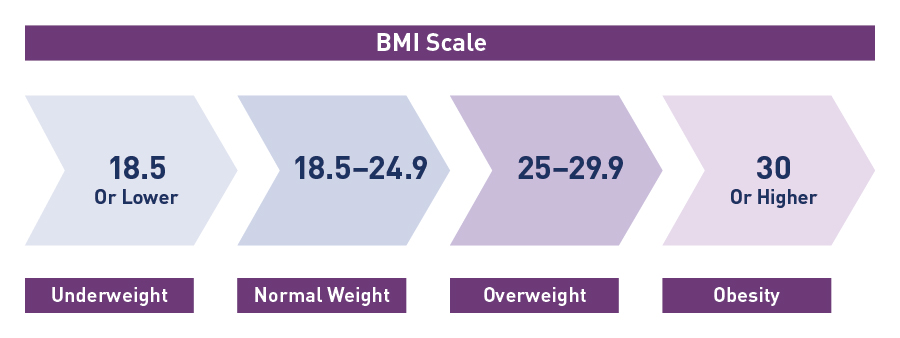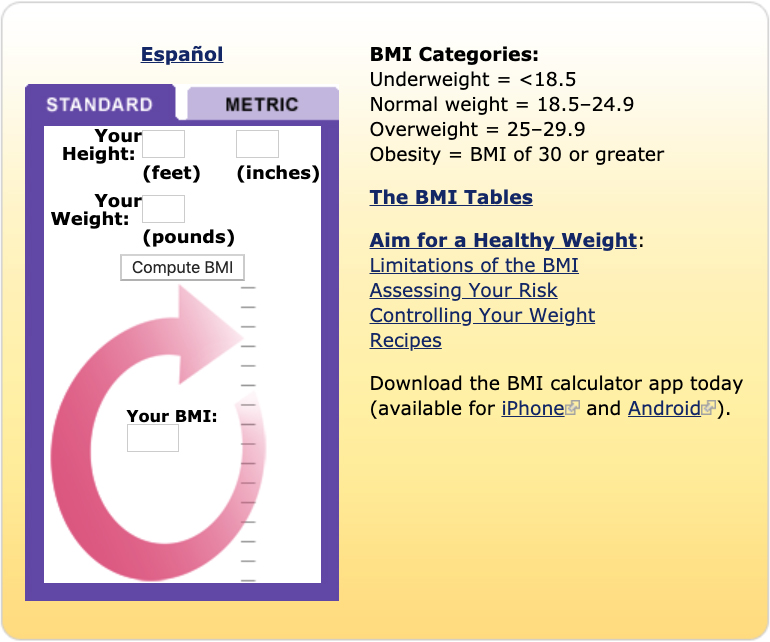Healthy Pregnancies Are for Every Body
Looking for a size-friendly provider?
Ask your primary care provider or other trusted health professional for recommendations. Resources such as Plus Size Birth also offer information and support for plus-size moms and moms-to-be, including suggestions for finding a trusted provider
.
Whatever your body size or shape, you can work with your healthcare provider to plan for a healthy pregnancy.
Plus-size women are at higher risk for certain health problems during pregnancy. But most plus-size pregnant women have healthy pregnancies, especially if they manage their weight gain, get regular prenatal care, and have a birthing plan in place for their labor and delivery.
Healthy pregnancy for plus-size women does not happen alone: women and providers need to work together to ensure the best outcomes. The first step is understanding your current health, body mass index (BMI), health history, and lifestyle (such as eating and physical activity habits) and how these factors can affect your pregnancy. Then you and your provider can work together to create a healthy pregnancy plan that meets your specific health needs. The plan may include meal planning, nutritional goals, physical activity changes, and ideas for reducing stress.
 Your healthy pregnancy plan can also help set the stage for your long-term health. Continuing healthy behaviors after giving birth can provide life-long health benefits.
Your healthy pregnancy plan can also help set the stage for your long-term health. Continuing healthy behaviors after giving birth can provide life-long health benefits.
Pregnancy for Every Body aims to help pregnant women and their providers work toward these ultimate goals: healthy pregnancies, safe deliveries, and healthy babies.
What Is Body Mass Index (BMI)?
BMI is a ratio of height to weight (weight in kilograms divided by height in meters squared) that healthcare providers use to categorize someone’s weight status. Research shows that different weight statuses are associated with different health risks and benefits, including some related to pregnancy. Learn about BMI categories and about calculating your BMI.
How Do Providers Use BMI?
Healthcare providers use BMI as one piece in the overall puzzle of providing care. Your BMI is one factor in your healthy pregnancy plan, but it is not the only factor and not even the main factor. Your current health, health history, lifestyle and habits, and other information help your provider understand your pregnancy and your specific health risks. Your provider takes all of this information into account when working with you to create a healthy pregnancy plan that meets your specific needs.
How Does Weight Affect Pregnancy?
Research shows that a BMI of 30 or higher before pregnancy is linked to higher risk of pregnancy complications.
Women with a pre-pregnancy BMI of 30 or higher1 are at higher risk for the following:
- Gestational diabetes*: When a woman who did not have diabetes before pregnancy has problems with high blood sugar during pregnancy
- C-section*: Surgical delivery of the baby
- Preeclampsia*: Sudden increase in blood pressure after the 20th week of pregnancy
- Preterm birth*: Birth before 37 weeks of pregnancy
- Miscarriage*: Unexpected pregnancy loss before the 20th week of pregnancy
- Stillbirth*: Death of a fetus at or after the 20th week of pregnancy
*Links go to nichd.nih.gov.
Getting early and regular prenatal care allows your provider to watch for signs of these conditions and possibly treat some of them before symptoms become serious. Your provider may also adjust the timing of or order different tests, such as earlier testing for gestational diabetes, based on your health and health risks.
In most cases, healthcare providers recommend against losing weight or trying to lose weight once you are pregnant.1 Doing so may affect the growth and development of the fetus. They may, however, recommend that you adjust your eating and physical activity habits, so you do not gain more weight than is recommended.
Can My Weight During Pregnancy Affect My Baby’s Health?
Yes. Babies whose mothers had a BMI of 30 or higher during pregnancy:
- Are at higher risk for metabolic syndrome, obesity, and asthma during childhood.1
- May experience growth problems in the womb.
- Are at higher risk for certain congenital anomalies, such as heart problems and neural tube defects.
- Are at higher risk for developmental problems, such as attention deficit/hyperactivity disorder.
What Can I Do if I’m Plus Size and Pregnant?
First: Congratulations on your pregnancy!
Second: Remember that most plus-size women have healthy pregnancies and healthy babies.
Next: Be more informed!
Find a provider who treats you with respect and who you can trust. Talk with your healthcare provider about your current health, health history, lifestyle, and other factors that may affect your pregnancy. Work with your provider to create a healthy pregnancy plan. Find more resources on our Resources page.
What Can I Do if I’m Plus Size and Planning a Pregnancy?
Healthcare providers recommend that plus-size women considering pregnancy try to lose weight before they begin trying to get pregnant.1 Losing weight before pregnancy is one of the best ways to reduce weight-associated pregnancy risks. Losing even a few pounds can improve health outcomes.
Once you are pregnant, you and your provider will track your weight at each visit to check the growth of your fetus. If you are gaining less weight than current guidelines suggest, but the fetus is growing well, there may be no need to gain more weight. If the fetus is not growing well, you and your provider may need to change your diet and physical activity habits.
BMI Categories
- Underweight: less than 18.5
- Normal weight: between 18.5 and 24.9
- Overweight: between 25 and 29
- Obesity: 30 or higher

Calculate Your BMI

Use the National Heart, Lung, and Blood Institute’s BMI Calculator to get your BMI.


 Citations
Citations BACK TO TOP
BACK TO TOP